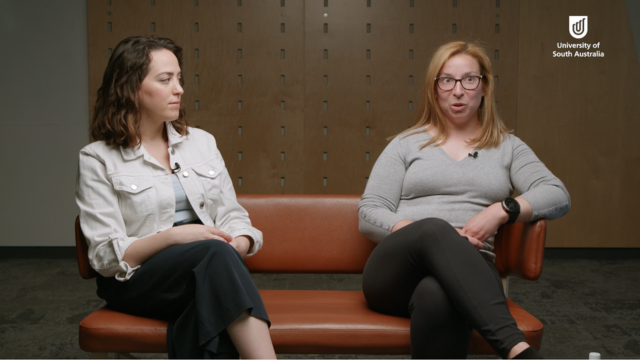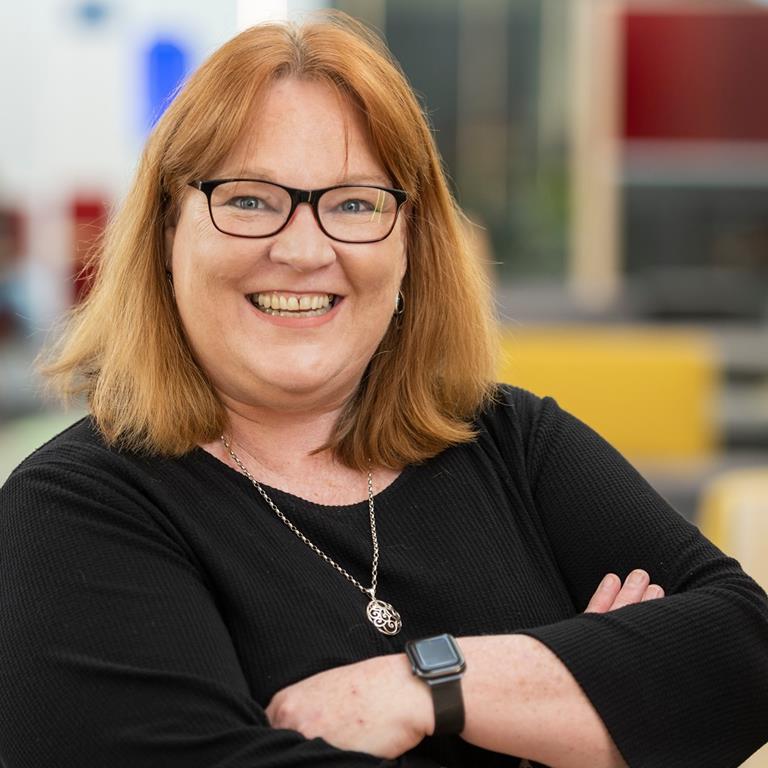Bachelor of Social Science (Human Services), Bachelor of Psychology
Degree Level Undergraduate
Year 2025
You're considered an International student if you are:
Degree Level Undergraduate
Year 2025
Program Code
MBSP
Prerequisites
None
Assumed Knowledge
None
Fees
AUD$ 32,800 per annum (per 1.0 EFTSL) for students enrolled in 2025
Admissions
Student Profile
International Admission by Country
See full entry requirements
CRICOS Code
055257J
The admission criteria have been grouped to assist you to easily find the information most relevant to your circumstances. However, you may fit into more than one and the university will consider applicants against each of the relevant criteria.
Certain conditions apply. For more information refer to Appendix 4 of the University's Selection and Entry policy.
Applicants are required to meet one of the following criteria with a competitive result, and demonstrate that they fulfil any prerequisite requirements and essential requirements for admission:
Recent secondary education
Meet any prerequisite requirements with a minimum grade of C- or equivalent
AND
Applicants who have not achieved the Selection Rank required for automatic selection may be selected for any remaining places based on the grades of their year 12 subjects.
OR
Higher education study
OR
Vocational Education and Training (VET)
OR
Work and life experience
| Nepal NEB | 2.51 |
| Bangladesh HSC | 3.5 |
| Canada High School (OSSD) | 65 |
| Eynesbury FSP | 320 |
| German Abitur | 3.5 |
| Kenya KCSE (average) | B |
| Malaysia STPM (best 3) | 6 |
| Malaysia UEC | 31 |
| Norway GPA | 3 |
| Pakistan HSSC | 80 |
| Sri Lanka A Levels (best 3) | 7 |
| Sweden GPA | 13 |
| UK Board GCE A Levels/HK Board | 7 |
| Vietnam | 7.5 |
| Australia | 67 |
| IB (best 6) | 26 |
| USA SAT (1600) | 1110 |
| India (best 4) State Board | 75 |
| India (best 4) Central Board | 65 |
| HKDSE | 15 |
1Ranked equal #6 ComparED (QILT) Graduate Outcomes Survey 2021-23, Humanities, Culture and Social Sciences – Full-time Employment Indicator (Domestic Postgraduate). SA public universities. 2Ranked #3, ComparED (QILT) Course Experience Questionnaire 2021-22, Humanities, Culture and Social Sciences – Overall Satisfaction Indicator (Domestic Undergraduate). Public universities. 3Ranked #7, ComparED (QILT) Student Experience Survey 2021-22, Skills Development Indicator (Undergraduate). Public universities. 42018 Excellence in Research for Australia (ERA).

This double degree provides a balance of courses in psychology and human services, enabling graduates to enter the workforce with a strong understanding of psychology as it relates to the human services sector.
You will study a range of topics, including:
Through a range of theoretical and practice-based learning opportunities you will gain a sound understanding of the political, behavioural and social sciences, and will be equipped with the skills needed to work in a diverse range of fields. You will also gain practical experience during your field education placement. This is a valuable learning opportunity where you will build industry networks and further enhance practical skills.
Students studying this degree will be required to undertake Criminal History Checks through the Department of Human Services (DHS), a National Police Record Check, and complete a one-day Safe Environments for Children and Young People course prior to being accepted for work placements. Some placements may also require students to hold a current driver's licence and or additional requirements as requested by a specific placement provider.

Graduates of this double degree will be well equipped to deal with the contemporary issues facing human service professionals. You will study a balance of courses in psychology and human services. The following areas of study are a key focus:
You may also be given the opportunity to choose from a range of specialist psychology courses, including Advanced Research Methods, Conservation Psychology, and Work and Organisational Psychology.

This double degree will set you apart from your competitors – and it can be achieved with only one extra year of study.
You will learn from industry experts and world-class researchers, and gain hands-on, practical experience in our on-campus Social Work and Human Services Studio. In the custom-built studios you will work alongside field practitioners and academic staff in simulated, real-life situations. Using state-of-the-art recording equipment and cameras, you can review your work and learn from your experiences.
You will also build workplace networks when you undertake field education placements.
You will graduate with a strong understanding of issues in psychology and how to implement your learning across a range of human service settings, opening up more diverse employment opportunities.
Hear from UniSA staff and former Psychology students Dr Alex Agostini and Dr Stephanie Centofanti on where a degree in Psychology can take you.

A career in the human services sector requires a strong interest in human behaviour; you also need to be able to think clearly and logically, to be compassionate, understanding and patient. There are a number of employment opportunities in a wide range of fields available to you upon graduation. Careers to consider:
This program is accredited by the Australian Psychology Accreditation Council.
Graduates will be eligible for full membership of the Australian Community Workers Association.
How to apply for international students will give you helpful information about the application process at the University of South Australia. When you are ready, apply through our International Application System. If you would like to talk to someone near you about studying at the University of South Australia, we have agents all over the world who can assist you. Find an Education Agent in your country.
Australian
There are other pathways you can follow to study this degree, including:
Every year, over 2,500 UniSA students are supported in their studies through scholarships and grants worth millions of dollars. Check out the scholarships below. One of them may be perfect for you. Visit our scholarships page for more.
Recipients can get a 50% reduction on tuition fees for up to four years of full-time study for selected degrees.
Recipients can get a 15% reduction on tuition fees for the duration of their chosen degree.
As a UniSA student, you will have unique access to work placement opportunities, overseas study tours and exchanges, networking events, internships, guest speakers and more.
Our campuses are equipped with state-of-the-art facilities including modern lecture theatres, libraries, workshops and laboratories, as well as spaces that simulate real work environments. These are all supported by the latest technologies and a 24/7 online learning platform. We have health services on campus, gymnasiums, technology zones and great student lounges. You will also gain access to a range of community clinics, which provide professional and cost effective services in areas of health, business, law and psychology. There are campus sport activities to keep you active, and if you are keen to explore the social side of university life, there are movies, cooking demonstrations, parties and lots more.
Adelaide also has a variety of accommodation options to suit different requirements and budgets. Options include dedicated student accommodation and private rentals. See our long-term accommodation pages, or explore our student accommodation by Scape on Bank Street in Adelaide’s lively cultural precinct, an ideal location for students. It is within easy reach of UniSA’s city and metropolitan campuses, Rundle Mall shopping, the Central Market, Chinatown, and the West End’s vibrant nightlife. It is also across the road from the Adelaide train station, and on bus and tram routes.
You will have access to two state-of-the art Social Work and Human Services Studios, which are equipped with recording equipment and cameras so that you can practice your skills with the help of field practitioners and academic staff.

The program provides diverse career opportunities by connecting you to the real world through teaching and research partnerships with leading and emerging government and non-government human services organisations. The industry connections of academic staff provide immediate context in the teaching of the degree, and you can actively implement your learnings through the opportunity of field placements or internships, leading to employment across a number of sectors.

There are a number of ways to apply to study UniSA's undergraduate and postgraduate coursework degrees.
You can access our online International Application System through our How to Apply page. The International Application System is an easy and secure online application and acceptance process. You will have visibility of your application through the secure online portal with the ability to download offer documents, submit your acceptance and make a payment.
Alternatively you can submit an application through one of the University's registered Education Agents.
If you are completing an Australian year 12 qualification in Australia or overseas, or the International Baccalaureate (IB) Diploma Programme in Australia, you must apply through SATAC http://www.satac.edu.au/.
If you are applying for the UniSA Study Abroad or Study Abroad Plus program, you can submit your application online here.
Postgraduate study by research
For information on applying to do postgraduate study by research, including Masters by Research, PhDs or Doctorates, please visit http://unisa.edu.au/resdegrees.
There is no closing date for submitting your application however the admissions process takes between one and three weeks from the date that we receive your application and all required supporting documentation.
If you are completing an Australian year 12 qualification in Australia or overseas, or the International Baccalaureate (IB) Diploma Programme in Australia, you must apply through SATAC. Key dates for applications can be found here.
You may be eligible to receive credit or advanced standing for your chosen UniSA degree based on your previous studies, if they are in a related area at an equivalent or higher level. Receiving credit will reduce the number of courses you undertake within the degree, and may also reduce the overall duration of your degree.
The amount of credit you may be eligible to receive is assessed on a case-by-case basis by the Admissions team.
The best way to determine your eligibility to receive credit or advanced standing is to apply using our International Application System which can be found on our How to Apply page. You will need to supply detailed syllabus documents with your application.
UniSA welcomes the opportunity to speak with you regarding your study options. Our staff are able to talk to you about degree information, career outcomes and pathways, entry requirements, applications, and student life, so that you are able to make the best study decision for your future.
Click here to book a 1:1 appointment with one of our enquiries team.
We also have many events throughout the year in Australia and overseas where you can speak with UniSA representatives about your area of interest. View our calendar of events in your home country by selecting the 'International' filter.